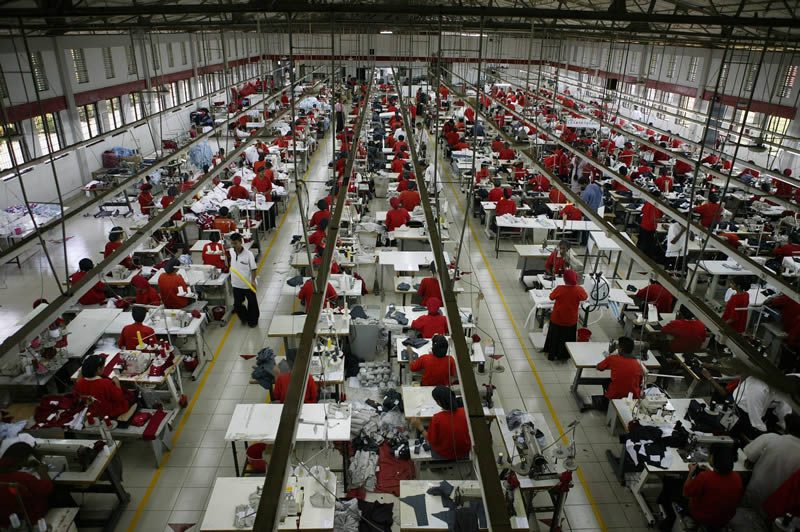Hanes Brands (formerly Pacific Brands)
What’s the problem with Hanes Brands (formerly Pacific Brands)?
Please note that this article was published in August 2011. Our Company Tracker is up-to-date and shows where brands stand on the race to a living wage.
Hanes Brands is the owner of iconic Australian brands such as Berlei, Bonds, Clarks, Dunlop, Slazenger and Volley. In 2009 Hanes moved many of its Australian-based factories off-shore. At the same time, an Oxfam report about labour rights transparency among Hong Kong-based garment factories found several major problems with a company coordinating the off-shore manufacture of Hanes Brands products.
Most women and men who work in the clothing industry world-wide are paid very low wages, denied the right to organise trade unions, have very little job security and work under highly exploitative and often dangerous conditions. Oxfam is calling on Hanes Brands to take more responsibility for the rights of the overseas workers who make its products.
In April 2013 Oxfam called on Hanes Brands to prove its respect for workers safety by signing on to the Bangladeshi Fire and Safety Accord. More than 1800 people have died in Bangladeshi factory fires and collapses. The accord is a legally binding initiative that goes well beyond companies own auditing programs to ensure safety for workers.
In December 2013, Oxfam was able to move Hanes Brands off the Christmas ‘Naughty List’ and onto the ‘Nice List’ of companies who have signed the accord.
Small steps in the right direction
Hanes Brands signed the Bangladesh Fire and Safety Accord in December 2013 after more than 4000 Australians signed a petition demanding change.
Hanes Brands could go further by releasing the locations of their supplier factories and ensuring workers are paid a living wage; as welll as ensuring the rights of workers to join a union to collectively bargain for their rights at work.
Back in August 2010 Oxfam Australia met with Hanes Brands to discuss its labour rights program. We delivered letters from Australians who care about the workers making Hanes Brands products.
We also discussed ways that Hanes Brands might improve transparency.
What’s the solution?
Greater transparency
Release the names and addresses of supplier factories and information about auditing reports.
- Without knowing the location of factories producing for Hanes Brands it’s hard to find out how workers are being treated. In August 2010 Hanes Brands said it would “consider providing greater transparency about our supplier profiles, including information about the issues we are identifying during audits.”Disappointingly Hanes Brands has said it will not release the location of its supplier factories. Several large brands — including Nike, Adidas, Timberland, Levi Strauss and Puma –have now publicly released the names and addresses of all their supplier factories. It’s time for Hanes Brands to also take this important step.
Fair and decent wages
Hanes Brands should ensure workers are paid a living wage.
- Workers require a living wage, which is one that allows them to meet the basic needs of a family after working a full-time working week without overtime. Hanes Brands has committed to talking about the issue of wages. We hope the company will go further and implement a living wage throughout its supplier factories.
The right to form trade union
Hanes Brands should only use factories in countries and free trade zones where freedom of association has legal force.
- The right to organise and form a union is very important in enabling workers to achieve better conditions and wages. Without this united structure it is nearly impossible for individual workers to ask for improved conditions without fear of retribution. Hanes Brands claims to assess ‘social compliance risks’ before deciding to source from any specific country or region — but much of the company’s goods are currently made in countries where the right to form unions does not have legal force.
Learn more
- Oxfam is keeping a watchful eye on the big brands and encouraging them to do more to uphold workers’ rights. Learn more about our labour rights campaigns.
